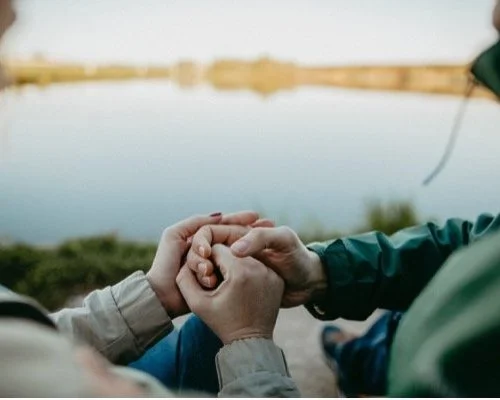Life is very unpredictable. What was once a secure income, home, or even a secure relationship, may feel shaken and unstable. Just when you thought you had got a handle on things, something out of left field occurs.
These are trying times. Ideally, it would be so helpful to lean on a trusted partner or spouse for support and encouragement. But what if tension and unpredictability exist or arises in your relationship? Rest assured, you are not alone. You asking yourself: is my relationship really secure?
Secure vs. Insecure Relationships
There are two general ways to ponder this distinction. Firstly, you have the standard definition of the words secure and insecure. A person may feel insecure, say, at work. This could grow from causes like downsizing, work performance, etc. In a relationship, secure vs. insecure attachment could be based on factors like communication, sex life, conflict, and so on. Running parallel to this perspective is the concept of attachment style. A secure attachment style is the standard and is typically the result of having healthy relationships and caregiving as a child. Insecure attachments may be:
Anxious
Avoidant
Preoccupied
Dismissive
Fearful
Currently, you may feel something is off about your connection but you can’t put your finger on it. This may be an ideal time to talk with a online therapist for direction. In the meantime, however, carefully ponder whether the following 5 factors are present in your everyday interactions.
5 Ways to Know If Your Relationship is Secure
1. Your Communication Style
Security is based on transparency and respect. These two factors are expressed via face-to-face communication. It is where you learn how to:
Practice truth and honesty
Make apologies and offer forgiveness
Recognize potential conflicts
Nip negative habits in the bud
2. The Presence of Trust
Mistrust is the fertile ground in which insecurity blooms. Take a giant step back and examine your feelings about your partner in terms of trust. Ask yourself some tough questions like:
Can I be safely vulnerable and open with my partner?
Is this relationship a source of comfort and reliability?
Am I okay to be my authentic self with my partner?
See if the answers guide you to a place of security.
3. A Sense of Commitment
No matter how long you’ve been connected, you can still wonder if your partner is happy and committed. This concern can be uncomfortable to deal with. Even so, it is an important topic to regularly explore via healthy communication. Is longevity still a relationship goal for both of you?
4. Interdependence
Are you in a relationship of equals? You rely on each other but not only on each other. In terms of commitment, take a look at how you work together and lend support. Can you do so without sacrificing the core parts of your life, needs, and wellbeing? If you are unsure, you may be drifting into codependence which is a form of insecure relationship. A counselor can help you see things objectively and suggest tools for healthier interaction.
5. You’ve Embraced Evolution and Growth
Remember the start of this post: everything changes and change can be unpredictable. Are you and your partner dealing with change and evolving together? Do you want to? Does it feel easier or more familiar to push each other away or bicker during the hard times? Love can be eternal but compatibility is fluid. To preserve relationship harmony, try to tap into compassion, humor, and shared goals. Take the time to prune old resentments and grow in a new, healthy direction.
Work With a Guide
We are all called to be brave socially and relationally. It is indeed unexpected. But it is also quite doable. Mental health experts and relationship counselors are ready a willing to meet with you through online or in person therapy. You can explore the security of your relationship safely at home. It is quite possible that your relationship just needs some extra support. Or it could be that you’re both too close to the situation to gain an accurate viewpoint. Choosing to commit to counseling — individually or as a couple — is a giant step toward greater awareness. Your therapist is like an unbiased, yet highly qualified guide.
Together we can break down the nuances of your couple connection and identify where any weak links may exist. This process can be healing and preventative. If you’re thinking you’re not the kind of couple that needs counseling, remember, life's path is unpredictable, a loving, secure relationship can help soothe along the way. If you’re interested in anxiety therapy please contact me for a free consultation. I am here to help and am looking forward to hearing from you soon.
Related posts on Anxiety therapy
Signs You May be Experiencing Existential Anxiety
What Are Thought Traps and How Do They Keep You Stuck in Anxiety?
What Are Thought Traps and How Do They Keep You Stuck in Anxiety?
What are Art-Based Methods of Anxiety Treatment?
5 Meditation Methods to Manage Anxiety
Am I shy or socially anxious?
4 Ways to Handle Anxiety About War
4 Ways to Overcome Sex Anxiety
How Chronic Illness Can Cause Anxiety
What is Unknown Anxiety? 5 Ways to Embrace the Gifts
How EMDR Helps Anxiety


